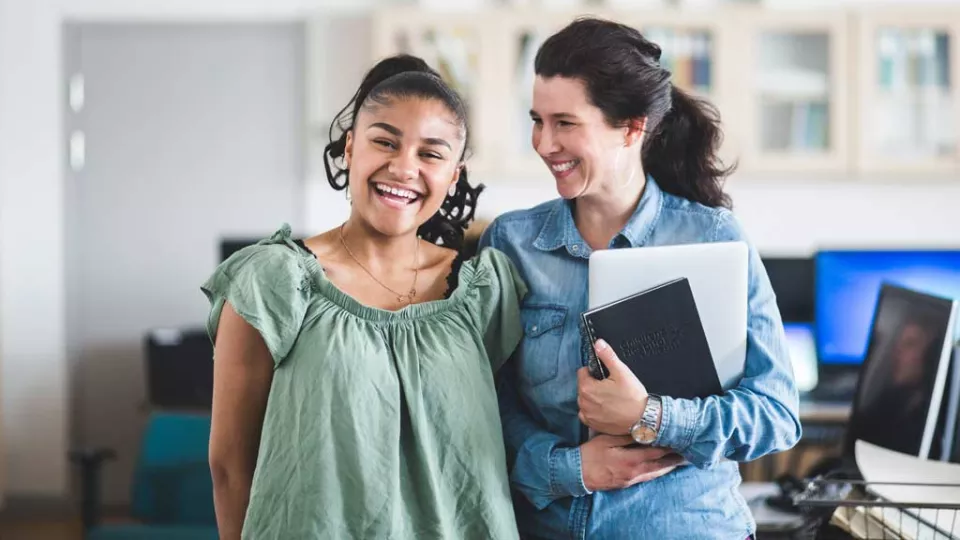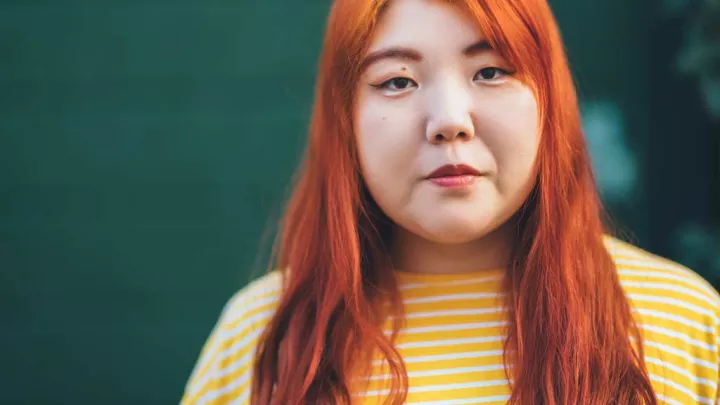
Helping Teens Overcome Drug Use
When adolescents and young adults need help creating a sober life, the expert counselors at the Substance Use Prevention and Treatment Program at Children’s Hospital Los Angeles are here to help.
“We are here to help each young person be healthy and discover positive ways to cope with stress and other issues so they won’t harm themselves,” says Program Manager Irene Lim, LCSW.
Adolescent substance use—including prescription medications like opioid painkillers—is a major public health concern. Drugs and alcohol have a negative impact on the developing brain, especially for youth who may already be affected by emotional trauma. The good news is that teen use of opioids is at its lowest level in over two decades, but the flip side is that teen overdoses from prescription and illicit opioids (like fentanyl and heroin) are actually up.
The young participants in the Substance Use Prevention and Treatment Program, part of the hospital’s Division of Adolescent and Young Adult Medicine, have used a variety of substances including marijuana, “club drugs” like MDMA (Ecstasy), meth, alcohol and opioids.
Many youth join the program involuntarily, having been caught using drugs or alcohol by parents, other caregivers or even police. But program staff work hard to earn their trust and build positive relationships. “Demonizing drugs doesn‘t work,” says Lim. “In fact, it can make drugs seem more alluring to some youth.”
Identifying Goals
Program staff come from a basic philosophy of “safety first” while encouraging youth to remain drug and alcohol free. They begin by identifying each youth’s chief motivators—their goals, wishes and/or dreams.
Learning these inspiration points can help participants find reasons to stop relying on substances. The emphasis is on replacing the negative reinforcement youth may have received with self-love and acceptance. “Rather than admonishing a teen with statements like, ‘You’re better than this,’ or ‘You messed up,’ the message could be ‘Tomorrow’s a new beginning,’” says Christina Esquibel, addiction treatment counselor.
Most important, says Lim, “is to stop shaming people who need help with substance problems. We wouldn’t shame someone who needs insulin or dialysis or chemotherapy.”
In this positive atmosphere, youth get a second chance as staff members guide them to recognize and rely on their own strengths. The first strength Is just showing up, says Lim, and finding the courage to share your issues and feelings with strangers.
Misuse of prescription opioids like oxycodone (OxyContin®), hydrocodone (Vicodin®) and codeine is highest among young adults ages 18 to 25, says the National Institute on Drug Abuse, increasing the importance of honest conversations about drug use during the teen years.
Adolescents are a unique group—balanced between childhood and adulthood—when their brains and bodies change, often dramatically. This age is characterized by a willingness to take risks, which can lead to curiosity about drugs and alcohol. For some adolescents, what looks like experimentation may actually mask emotional pain. The key is to acknowledge teens as teens, says Esquibel. “It’s unfair to put adult-sized expectations on young people. The same things don’t work for both.”
Under California law, anyone 12 and older can consent to their own mental health treatment, which includes substance use counseling. This helps empower teens and give them some sense of control at a difficult time.
The Children’s Hospital program offers individual, family and group counseling, including a separate group for parents. “We tell parents to trust us, that we will include you in this process,” says Lim, “but we are, number one, advocates for the youth.”
Sharing Their Stories
Teens are encouraged to tell their stories in different ways, including art and music. Among the topics up for discussion are the protective factors the teens may have in their lives, such as family and friend support. They also learn ways to speak up for themselves when confronted with temptation or peer pressure, such as a friend offering a pill at a party or a drink whose ingredients are unknown.
In parent groups, participants may look at their own behaviors around substances and how that can affect their children. They also get ideas for starting difficult conversations with their teens about substance use and their expectations of their children. Families can receive case management services, including physical health checkups for their child, connections to community resources and assistance with an Individualized Education Program for children who are eligible for special education.
Recovery is a journey, with setbacks and comebacks. “Gradually, the teens begin to make lifestyle changes and new choices,” says Nancy Hernández, MSW, psychotherapist for the program, “so little by little they keep going forward.”
“All the while they are moving toward positivity,” Esquibel adds. “In doing so, they gain wisdom from the experience that they can share with others.”


